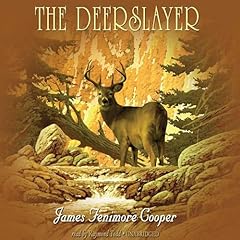
The World of Yesterday
Memoirs of a European
No se pudo agregar al carrito
Add to Cart failed.
Error al Agregar a Lista de Deseos.
Error al eliminar de la lista de deseos.
Error al añadir a tu biblioteca
Error al seguir el podcast
Error al dejar de seguir el podcast
 Exclusivo para miembros Prime: ¿Nuevo en Audible? Obtén 2 audiolibros gratis con tu prueba.
Exclusivo para miembros Prime: ¿Nuevo en Audible? Obtén 2 audiolibros gratis con tu prueba.Compra ahora por $24.94
-
Narrado por:
-
David Horovitch
Stefan Zweig's memoir, The World of Yesterday, recalls the golden age of prewar Europe - its seeming permanence, its promise and its devastating fall with the onset of two world wars. Zweig's passionate, evocative prose paints a stunning portrait of an era that danced brilliantly on the brink of extinction. It is an unusually humane account of Europe from the closing years of the 19th century through to World War II, seen through the eyes of one of the most famous writers of his era. Zweig's books (novels, biographies, essays) were translated into numerous languages, and he moved in the highest literary circles; he also encountered many leading political and social figures of his day.
The World of Yesterday is a remarkable, totally engrossing history. This translation by the award-winning Anthea Bell captures the spirit of Zweig's writing in arguably his most important work, completed shortly before his tragic death in 1942. It is read with sympathy and understanding by David Horovitch.
©1942 Fischer Verlag. 2011 Anthea Bell (translation) (P)2017 Ukemi Productions LtdLos oyentes también disfrutaron:




















Reseñas de la Crítica
"Zweig's celebration of the brotherhood of peoples reminds us that there is another way." ( The Nation)
Las personas que vieron esto también vieron:


















His description of prewar Europe is better than anything that I’ve ever read in a textbook and although one might quibble over the details the affection for the culture and the fear that it is being destroyed are unforgettable. I wish that he had not given up on Europe and on himself.
What a loss
Se ha producido un error. Vuelve a intentarlo dentro de unos minutos.
Could be written today,about today. I had nightmares! The human nature or should I say lack of it remains a threat to existence!
History brought to life and feeling!
Se ha producido un error. Vuelve a intentarlo dentro de unos minutos.
a must read or listen
Se ha producido un error. Vuelve a intentarlo dentro de unos minutos.
The narrator here is terrific.
This is such a good read.
An enlightening and fascinating memoir about. Europe so few of us knew
Se ha producido un error. Vuelve a intentarlo dentro de unos minutos.
If you're interested in European life 1900-1942, this is wonderful. Zweig's work is a sensitive understanding of his world and its destruction.
Great Insight. Great book!
Se ha producido un error. Vuelve a intentarlo dentro de unos minutos.


